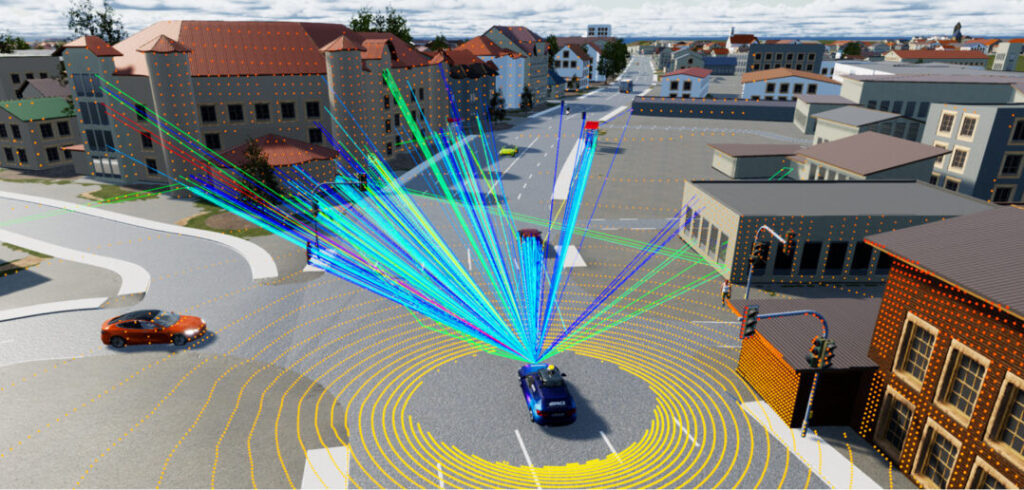A technology partnership has been formed between Aves Reality and dSpace to enable autonomous vehicle developers to validate sensors and algorithms in virtual test drives in a range of realistic scenarios. The test drives will be conducted in dSpace’s sensor simulation solution Aurelion, with Aves Reality supplying synthetic environments for the program.
To successfully validate autonomous driving functions and sensor simulations, expansive 3D environments are required with life-like locations, materials and semantics. Using AI and video game technology, Aves Reality can process satellite imaging to create realistic 3D content on a large scale. This is then used within Aurelion for camera, radar and lidar simulation. Due to this, dSpace’s simulation solution can use synthetic environments to conduct the validation of algorithms for AD simulation applications.
“Our 3D environments with a size of several square kilometers facilitate virtual test drives through entire cities on the basis of existing road networks and real spatial base data,” explained Florian Albert, CEO of Aves Reality. “Through the scalable and detailed simulation environments, development projects can be carried out virtually in a cost-effective manner with reduced risk.”
“Initial results from customer projects show that the large-scale imaging of entire districts from Aves Reality represent a significant added value for our customers and also optimally complement the dSpace simulation solutions,” added Thorsten Pueschl, product manager scenarios at dSpace.
The Aurelion simulation software is used during the entire development process, including for software-in-the-loop testing, hardware-in-the-loop testing, or for scaled validation in the cloud. Aurelion benefits from an extensive library of sensor models, enabling new sensors to be recreated in simulation solutions before reaching market. Third-party sensor models can also be integrated into the simulation program.


